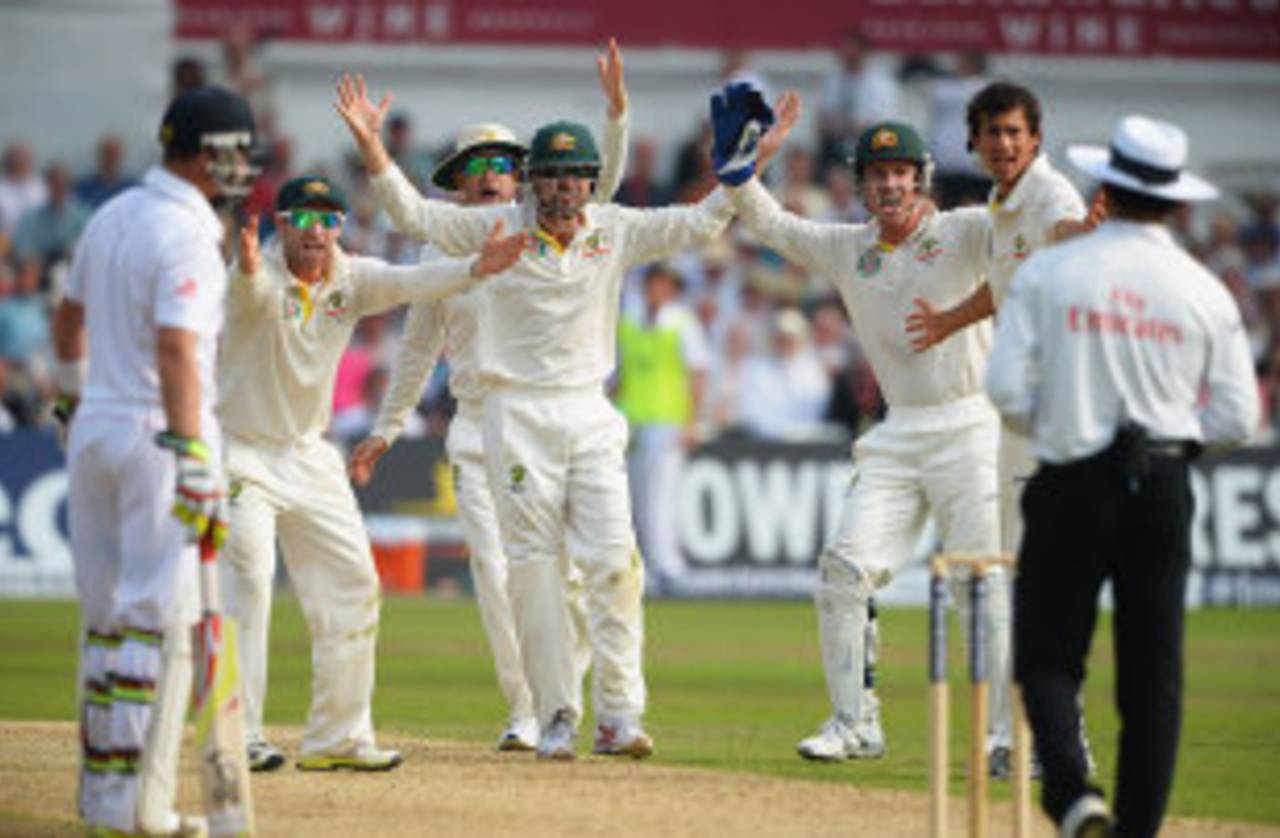ICC defends umpires, DRS
The ICC has defended the performance of the umpires and the DRS after criticism following the Trent Bridge Test between England and Australia
George Dobell
16-Jul-2013

Australia suffered when they could not review an incorrect not-out decision against Stuart Broad • Getty Images
The ICC has defended the performance of the umpires and the DRS after criticism following the Trent Bridge Test between England and Australia, whilst also admitting to errors in cases involving Jonathan Trott and Stuart Broad.
The ICC has taken the unusual step of revealing its assessment of the umpires and the DRS analysis from the Test, arguing that the figures vindicate both. Some mitigation was provided for the errors that did occur, the ICC suggesting the "added intensity" of a first Ashes Test had increased pressure on the officials.
According to the ICC, the umpires made a total of 72 decisions, which is well above the average (49) for a DRS Test match. The umpiring team, made up of Aleem Dar, Kumar Dharmasena and Marais Erasmus, was assessed to have made seven errors during the match, out of which three were uncorrected decisions and four decisions corrected using the DRS.
As such, the correct decision percentage before reviews stood at 90.3% but climbed to 95.8% as a result of the use of the DRS. This represented an increase of 5.5% in correct decisions, which was the average increase from DRS Test matches in 2012-13.
The three decisions that were marked as uncorrected errors included one against Trott when a correct lbw decision (not out against the bowling of Mitchell Starc) was overturned. The others involved Broad, both the edge that carried to slip via Brad Haddin's gloves and a leg-before shout where he did not offer a stroke, but neither but these could be corrected as Australia had no reviews available.
"When coupled with the conditions, with reverse swing and spin playing an important role, and the added intensity of the first Ashes Test, it was a difficult match to umpire," read the ICC statement.
The ICC's chief executive, David Richardson, added: "The umpires did a good job under difficult conditions. This reflects the calibre of umpires Dar, Dharmasena and Erasmus who have consistently performed at a high level. Like the players, umpires can also have good and bad days but we all know that the umpire's decision, right or wrong, is final and must be accepted.
"While the ICC has complete faith in the ability of its umpires, our confidence in technology is also strengthened by the fact that there was an increase in the number of correct decisions in the Trent Bridge Test through the use of the DRS.
"Technology was introduced with the objective of eradicating the obvious umpiring errors, and to get as many correct decisions as possible. If it can help increase the correct decisions by 5.5 percent, then it is a good outcome, but we must continue to strive to improve umpiring and the performance of the DRS."
George Dobell is a senior correspondent at ESPNcricinfo